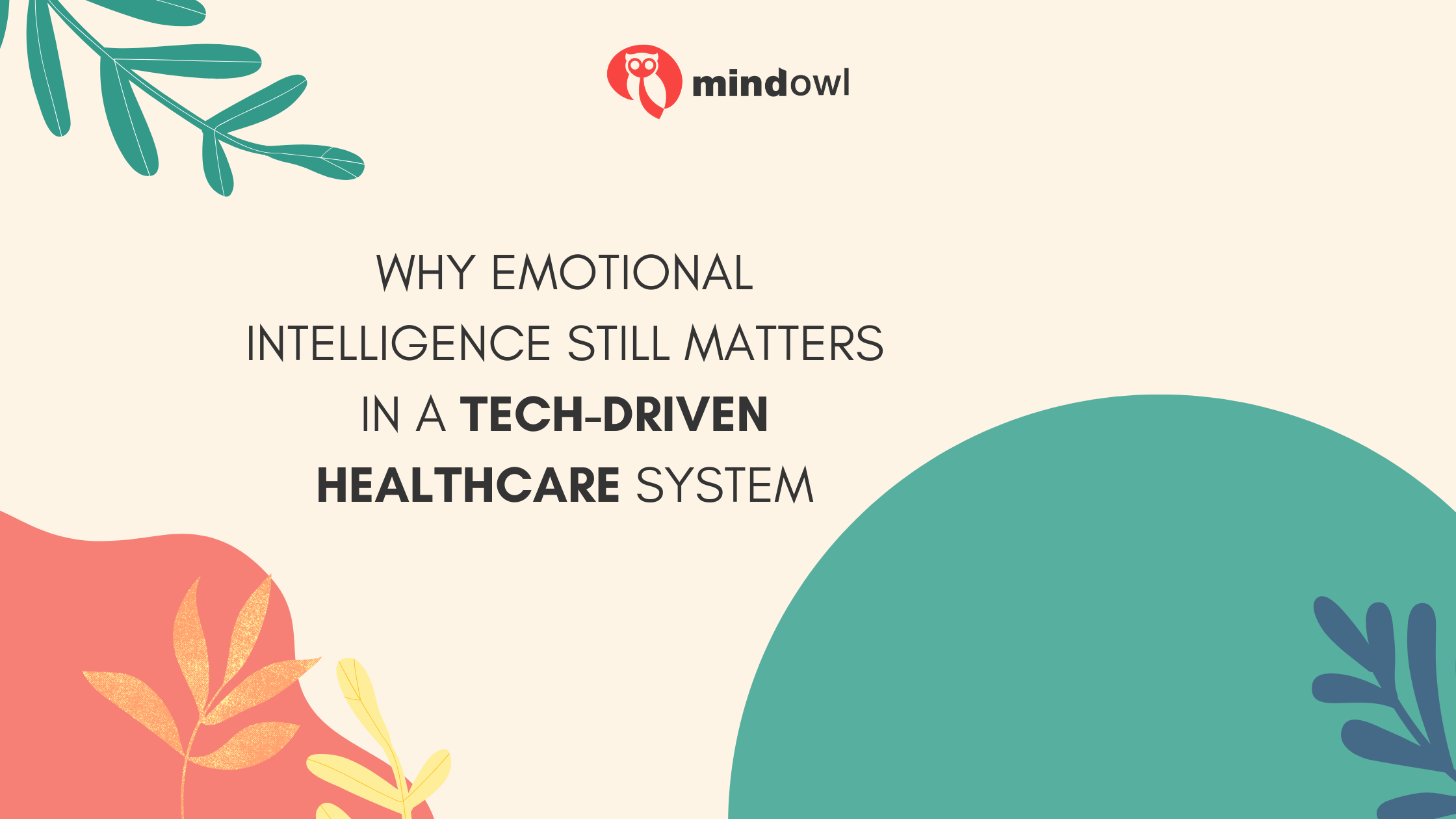We live in an age where technology is woven inextricably into every component of the healthcare system. Patients are strapped in their beds with monitors tracking their vitals every moment. Data algorithms and even artificial intelligence programs process information and help physicians develop long-term treatment plans.
In certain hospitals, robots are even assisting with surgery. In an age of potential over-utilization of technology, how important is emotional intelligence, really?
Turns out, very. In this article, we talk about how empathy and emotional IQ are still important qualities that every healthcare professional should have.
What Do We Mean by Emotional Intelligence?
Emotional intelligence is, in many ways, an intuitive quality. It means that you understand where another person is coming from on an emotional level and are able to adapt your behaviors to meet them where they are at.
For example, in the healthcare context, some patients do best with a very soft bedside manner. They will respond well to patience, empathy, and understanding. Other patients who happen to be more difficult by nature might require someone who is much firmer. They might be more difficult or headstrong by nature, and so will respond better to someone who can respectfully but unequivocally put them in their place.
The same nurse should be able to deliver both styles of care, depending on what kind of patient is in front of them. Why is this important? Well, for one thing, it helps ensure that every patient receives the exact sort of care that is best for them.
Patients may not know that they are getting a cultivated side of their nurse or physician’s personality, but they will know that they feel seen and recognized. Emotional intelligence doesn’t have to happen at a patient’s bedside either. Anyone making health-related choices that affect people at the community level should practice empathy in their decision-making.
In the next few headings, we will take a look at how emotions find their way into numbers.

Emotional Intelligence and Health Informatics
Good health informatics is a term that refers to how data analysis is woven into care strategies. In the context of health informatics versus health information management, informatics is all about taking and processing the data, while health information management is about handling it on a patient level.
In both cases, a professional is dealing with numbers, which, as we all know, are cold, hard, and objective. In other words, as unemotional as a thing could be. And yet the numbers are describing the behavior of a person or community that is making decisions, often primarily on emotional grounds.
Maybe you see the paradox. Healthcare exists at the intersection of emotion and facts. It can be hard for some professionals to separate the two. It’s not only about making the patient feel good through personalized care, though that is important. It’s also about understanding how and why they are making their decisions so that you can better respond to them.
The numbers tell you what is happening, but they don’t tell you why. Emotional intelligence can help fill in that gap.
Emotional Intelligence Helps Patients
It’s not just about finding the best solution. It’s about instilling a sense of comfort and confidence in the patient. Ultimately, it’s these qualities that will help them stick with the program and feel optimistic about their outlook. Both, incidentally, are important features of a successful treatment regimen.
Many people will do noticeably better when they feel comfortable around the people responsible for their care. Now, this isn’t to say that confidence is a magic bullet in the world of healthcare, but it certainly doesn’t hurt.
Let’s put it this way: if it can make even a two percent difference in outcomes, that still means that high levels of emotional intelligence are saving hundreds, if not thousands, of lives a year. That’s a noteworthy number that any healthcare provider should take seriously.
Who Needs Emotional Intelligence?
Anyone and everyone working in the hospital? Maybe not the custodians. Then again, maybe them too. Healthcare systems are highly emotional environments, and you simply can’t have too many professionals who are willing to engage with that fact.
At a bare minimum, you should have emotional intelligence clearly demonstrated by:
- Doctors – Need to connect with patients on a personal level to build trust and ensure compliance with treatment plans.
- Nurses – Spend the most direct time with patients and must adapt their communication style to each individual’s needs.
- Medical Technicians – Often perform procedures that can be frightening or uncomfortable for patients, and need to provide reassurance.
- Mental Health Professionals – Work directly with patients’ emotional and psychological well-being as their primary focus.
Management also needs these skills. Medical and health services are run by administrators as much as caregivers. These professionals make broader choices that are less specific to individual patient behaviors. Yet even here, empathy and emotional awareness are important components of ensuring success.
It comes back to the same basic principles. When an administrator is trying to develop a vaccination campaign, for example, it will help to understand where there is hesitancy in the community, why there has been hesitancy in the community, and from there, develop a strategy of what to do about it.
Hopefully, the strategy that meets people where they are and addresses their specific concerns with patience and understanding.
Can You Learn Emotional Intelligence?
Emotional intelligence is, without question, a soft skill. That does not necessarily mean it can’t be improved upon. Healthcare providers who want to get better at recognizing their patients’ emotional needs can begin by improving their listening skills.
The more a healthcare provider is willing to hear and recognize what their patients are saying, the better a chance they will have to tune into the emotional reasoning behind patient complaints, reservations, or hesitancies.
There may also be specialized training available at many hospitals that will further help professionals develop their emotional IQ. It’s not about developing a textbook definition of high emotional intelligence. It’s more about prioritizing empathy in every communication.
You won’t be a master of it on day one, but with concerted effort, you will get better consistently. Certainly, it helps to go in with at least a baseline emotional intelligence to start. But healthcare systems thrive under a wide variety of different participants.
If you are willing to take emotional considerations seriously in the healthcare context, that will often be enough of a starting point.
MindOwl Founder – My own struggles in life have led me to this path of understanding the human condition. I graduated with a bachelor’s degree in philosophy before completing a master’s degree in psychology at Regent’s University London. I then completed a postgraduate diploma in philosophical counselling before being trained in ACT (Acceptance and commitment therapy).
I’ve spent the last eight years studying the encounter of meditative practices with modern psychology.

